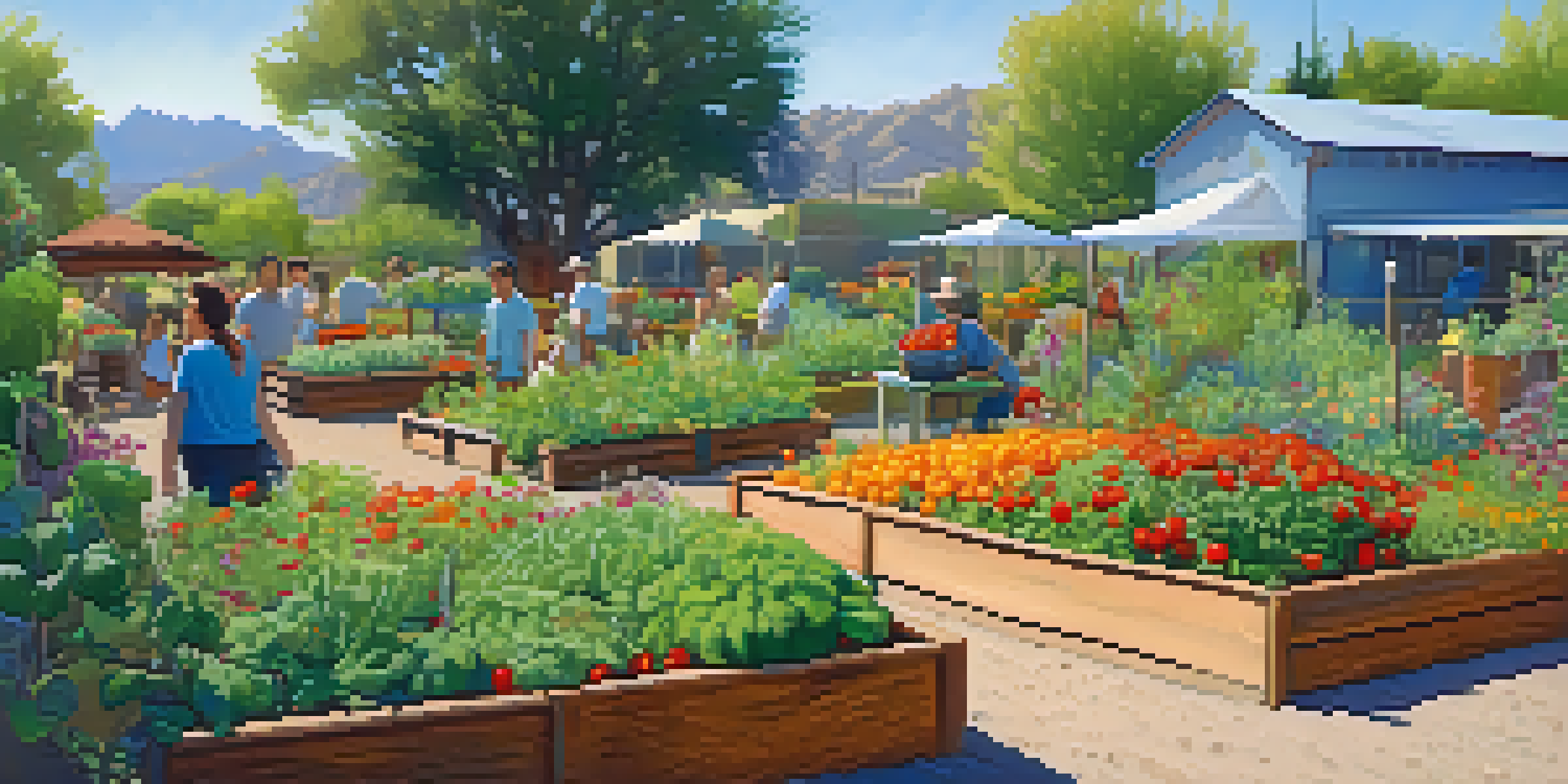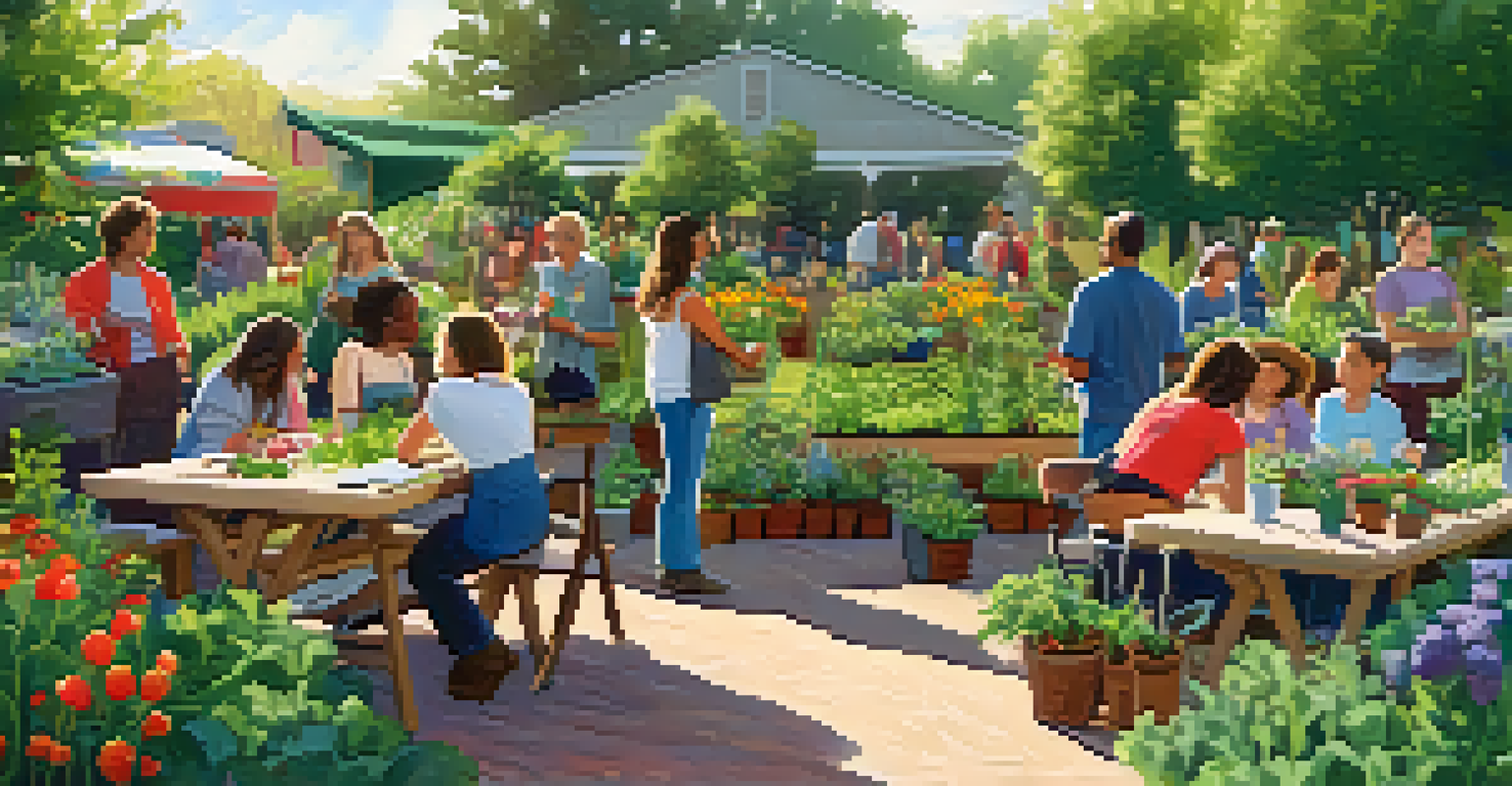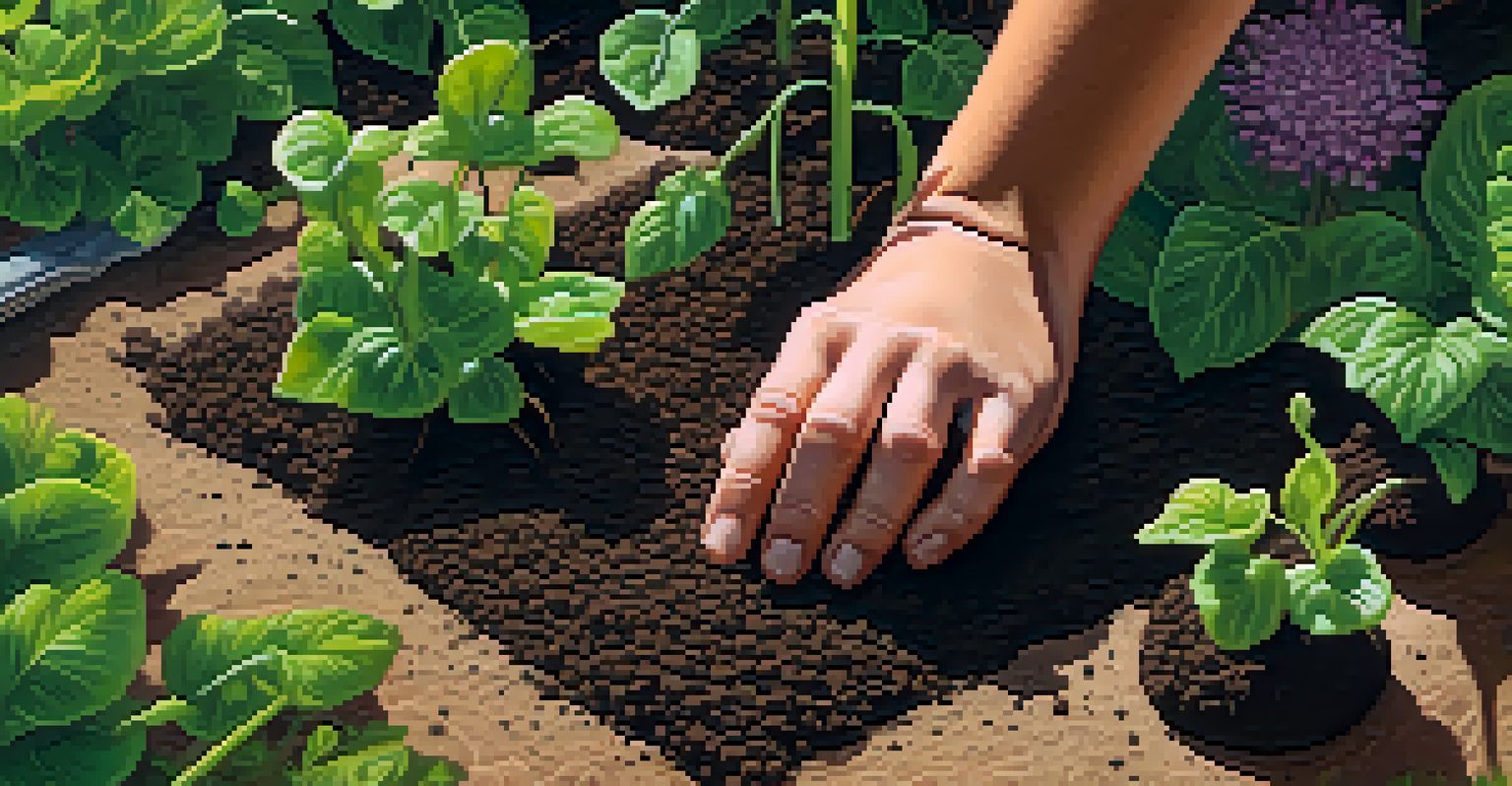Community Gardens in Tucson: Cultivating Urban Agriculture

Understanding Community Gardens: A Green Oasis in Tucson
Community gardens are shared plots of land where residents come together to grow vegetables, fruits, and flowers. In Tucson, these gardens serve as urban oases, bringing nature into the city. They not only beautify neighborhoods but also provide fresh produce, promoting healthy eating habits.
To plant a garden is to believe in tomorrow.
These gardens often reflect the diversity of Tucson's population, showcasing a variety of plants that represent different cultures. For instance, you might find traditional Mexican herbs alongside local favorites like tomatoes and peppers. This blend creates a rich tapestry of flavors and fosters cultural exchange among neighbors.
Moreover, community gardens encourage sustainability by promoting local food production. Residents learn to grow their own food, reducing reliance on store-bought produce. This shift not only benefits the environment by minimizing transportation emissions but also strengthens community bonds.
The Benefits of Community Gardening for Residents
Participating in a community garden can significantly enhance physical and mental well-being. Gardening is a physical activity that encourages exercise, helping to combat sedentary lifestyles. The act of nurturing plants can also be therapeutic, providing a sense of accomplishment and reducing stress.

Community gardens serve as social hubs where people can connect and build relationships. Neighbors often share gardening tips, recipes, and even harvests, fostering a sense of camaraderie. This interaction not only strengthens community ties but also enhances social support networks.
Community Gardens Foster Connections
These shared spaces not only provide fresh produce but also strengthen social ties among residents through collaboration and shared experiences.
Furthermore, these gardens can provide educational opportunities for residents of all ages. Workshops on gardening techniques, composting, and sustainable practices are often hosted, empowering individuals with valuable skills. This knowledge can be transformative, encouraging a more sustainable lifestyle beyond the garden.
Key Community Gardens in Tucson to Explore
Tucson boasts several notable community gardens that are worth a visit. One standout is the Tucson Community Gardens, which includes multiple locations where residents can rent plots. This initiative has been pivotal in promoting urban agriculture and fostering community spirit.
Gardening adds years to your life and life to your years.
Another gem is the Las Milpitas de Cottonwood Community Garden, which emphasizes organic practices and education. Here, gardeners collaborate to grow a diverse array of crops while learning about sustainable agriculture. It's a wonderful example of how gardens can serve both personal and communal goals.
The Garden Kitchen is also a must-visit, combining gardening with nutrition education. This space not only provides plots for growing food but also offers cooking classes and workshops, bridging the gap between growing and eating healthy. It highlights the importance of knowing where our food comes from.
How to Get Involved in Tucson's Community Gardens
Getting involved in Tucson's community gardens is easier than you might think! Many gardens welcome newcomers and offer memberships or plot rentals. Start by visiting their websites or social media pages to learn about open spaces and application processes.
You can also participate in volunteer days or community events organized by these gardens. These gatherings are a fantastic way to meet fellow gardening enthusiasts and contribute to the upkeep of shared spaces. It's a great opportunity to learn hands-on while making new friends.
Sustainability Through Local Gardening
Community gardens promote sustainable practices by encouraging residents to grow their own food, reducing reliance on store-bought produce.
Additionally, consider attending workshops or events hosted by the gardens. These sessions often cover topics like organic gardening and sustainable practices, enhancing your gardening skills. Plus, it's a chance to connect with other community members who share your passion for urban agriculture.
Challenges Faced by Community Gardens
While community gardens offer numerous benefits, they also face specific challenges. One major hurdle is securing land access, as urban areas often have competing interests for space. Community groups must navigate zoning laws and property regulations to establish and maintain gardens.
Another challenge involves funding and resources. Many gardens rely on donations, grants, or membership fees to sustain operations. Without adequate financial support, gardens may struggle to provide necessary resources like soil, tools, and educational programs.
Community engagement is also crucial; without active participation, gardens can fall into disrepair. It’s essential for members to collaborate and share responsibilities. Building a strong sense of community ownership can help ensure the longevity and vibrancy of these urban green spaces.
The Role of Local Organizations in Supporting Gardens
Various local organizations play a vital role in supporting community gardens in Tucson. Groups like the Community Food Bank of Southern Arizona advocate for urban agriculture initiatives and provide resources to gardeners. Their support is instrumental in helping gardens thrive through educational programs and outreach.
Additionally, nonprofits often offer grants or funding opportunities specifically for community gardening projects. These resources can help cover costs associated with starting or maintaining a garden, ensuring that more residents can participate in urban agriculture.
Challenges Impacting Urban Gardens
Securing land access, funding, and active community engagement are key challenges that community gardens face in urban environments like Tucson.
Collaborations between organizations and local governments can also enhance the effectiveness of community gardens. By working together, they can address challenges such as land access and funding, ultimately creating a more supportive environment for urban agriculture in Tucson.
The Future of Community Gardens in Tucson
The future of community gardens in Tucson looks promising, with growing interest in urban agriculture. As more people recognize the benefits of locally sourced food and community engagement, these gardens are likely to expand. This trend aligns with broader movements towards sustainable living and food security.
Innovations in gardening techniques, such as vertical gardening and hydroponics, may also influence the development of community gardens. These methods allow for more efficient use of space and resources, making gardening accessible even in limited areas. This adaptability can help meet the needs of a changing urban landscape.

Moreover, as climate awareness increases, community gardens can serve as educational platforms for sustainability practices. By teaching residents about organic gardening and environmental stewardship, these gardens can inspire future generations to value and protect their local ecosystems.